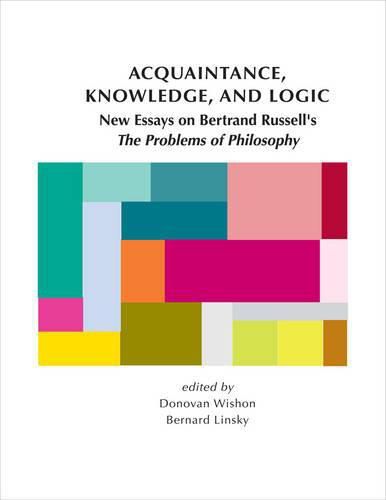Readings Newsletter
Become a Readings Member to make your shopping experience even easier.
Sign in or sign up for free!
You’re not far away from qualifying for FREE standard shipping within Australia
You’ve qualified for FREE standard shipping within Australia
The cart is loading…






Bertrand Russell, the recipient of the 1950 Nobel Prize for Literature, was one of the most distinguished, influential, and prolific philosophers of the twentieth century. Acquaintance, Knowledge, and Logic brings together ten new essays on Russell’s best-known work, The Problems of Philosophy. These essays, by some of the foremost scholars of his life and works, reexamine Russell’s famous distinction between knowledge by acquaintance and knowledge by description, his developing views about our knowledge of physical reality, and his views about our knowledge of logic, mathematics, and other abstract matters. In addition, this volume includes an editors’ introduction, which summarizes Russell’s influential book, presents new biographical details about how and why Russell wrote it, and highlights its continued significance for contemporary philosophy.
$9.00 standard shipping within Australia
FREE standard shipping within Australia for orders over $100.00
Express & International shipping calculated at checkout
Bertrand Russell, the recipient of the 1950 Nobel Prize for Literature, was one of the most distinguished, influential, and prolific philosophers of the twentieth century. Acquaintance, Knowledge, and Logic brings together ten new essays on Russell’s best-known work, The Problems of Philosophy. These essays, by some of the foremost scholars of his life and works, reexamine Russell’s famous distinction between knowledge by acquaintance and knowledge by description, his developing views about our knowledge of physical reality, and his views about our knowledge of logic, mathematics, and other abstract matters. In addition, this volume includes an editors’ introduction, which summarizes Russell’s influential book, presents new biographical details about how and why Russell wrote it, and highlights its continued significance for contemporary philosophy.